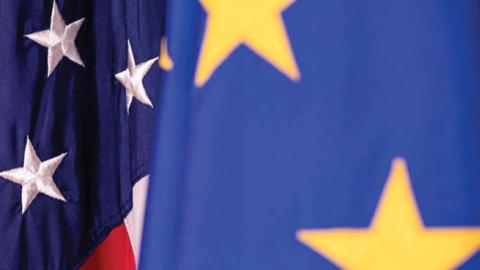After almost two years of Covid-induced absence from Paris and Berlin, I returned to the old world to make a surprising discovery: Europe no longer understands the United States. Between Washington’s shift to the Indo-Pacific, the lingering effects of the Trump presidency (along with fears of a return in 2024), and confusing signals emanating from the Biden administration, neither the Germans nor French know what to expect anymore. That uncertainty further complicates the difficult task of recasting the Atlantic alliance for a turbulent new era.
The most consequential misunderstandings involve America’s continuing pivot to the Indo-Pacific. After the Aukus explosion last month, the French and the Germans no longer doubt that the pivot is real, but few in Europe have fully grasped what it means.
Many Europeans, including some seasoned observers of the trans-Atlantic scene, believe that if the U.S. sees the Indo-Pacific as the primary focus of its foreign policy, it must be writing off the rest of the world. These observers look at the American withdrawal from Afghanistan and imagine that this is the kind of headlong retreat they can expect from America in Europe and the Middle East.
This is unlikely. American interests are global, and American presidents, like it or not, can’t confine their attention to a single world theater. During the Cold War, Western Europe was the primary focus of American foreign policy, but the U.S. also fought two major wars in Asia. The energy crisis has already forced President Biden to pay more attention to the Middle East. China’s efforts to gain influence in the Middle East and Europe will draw Washington’s attention toward its old NATO partners, as will Moscow’s continued alignment with Beijing.
Read the full article in The Wall Street Journal















